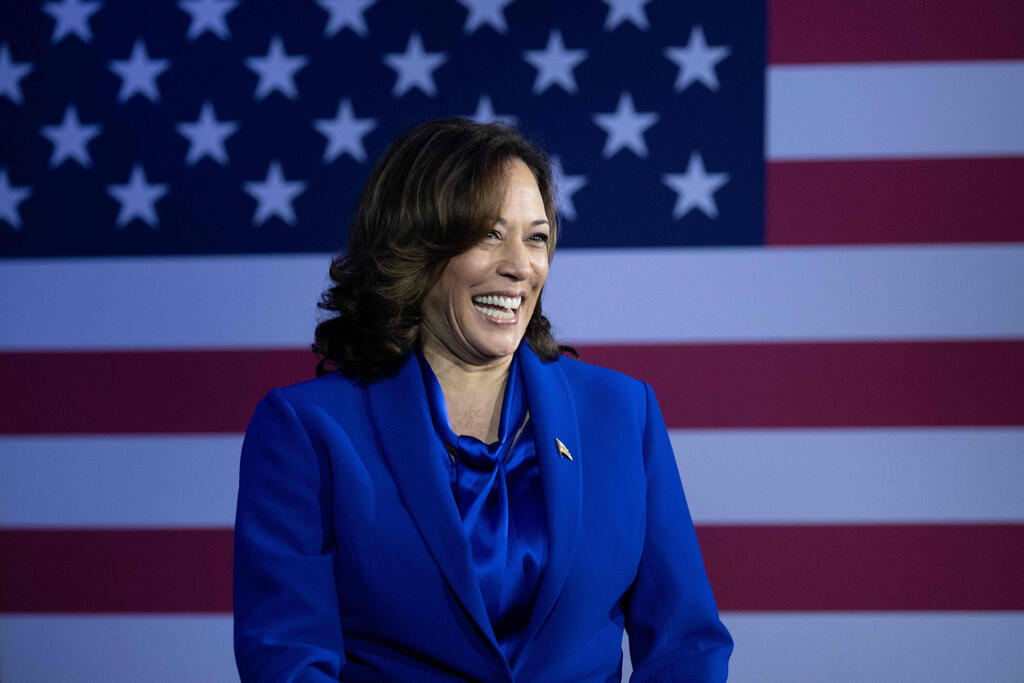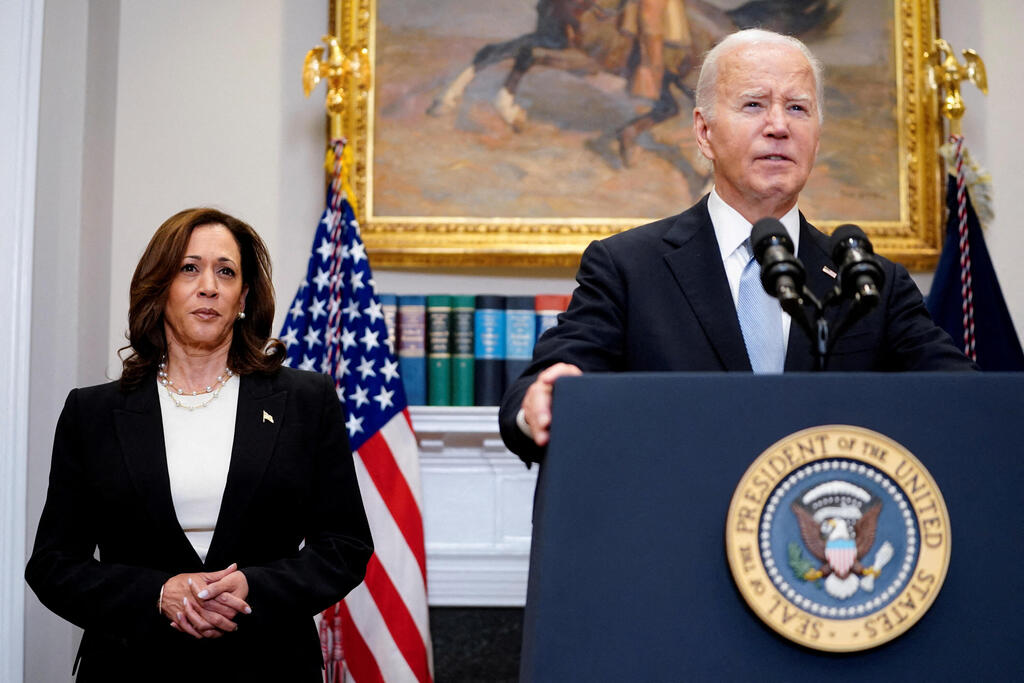Getting your Trinity Audio player ready...
With Joe Biden’s recent announcement that he will not seek another term as President of the United States, political analysts and commentators across the globe are keenly scrutinizing the differences between the outgoing president and his vice president, Kamala Harris. Harris, widely expected to be the Democratic nominee for the upcoming November elections, stands poised to potentially make history as the first female president of the U.S. if she triumphs over Donald Trump.
Media reports about Biden suspending presidential campaign
Biden, at 81, succumbed to mounting pressure from within the Democratic Party following his lackluster debate performance against Trump, announcing his withdrawal from the presidential race a mere four months before the election. In his withdrawal speech, Biden endorsed Harris, calling his decision to choose her as his vice president the best he ever made. This endorsement has galvanized many Democrats to rally around Harris’s candidacy.
Biden’s withdrawal (he will remain in office until the new president is inaugurated on January 20, 2025) amplifies the uncertainty surrounding the U.S.'s international influence amid ongoing conflicts in Gaza and Ukraine, the rise of far-right movements in Europe, and China’s efforts to bolster its global standing.
Harris, the first female vice president in U.S. history, has had a tumultuous tenure, struggling to leave a significant mark. Reports of a problematic atmosphere in her office and her dissatisfaction with Biden's reluctance to delegate substantial authority surfaced. Nonetheless, leading up to Biden’s withdrawal, Democratic insiders believed Harris had a better chance of defeating Trump. Biden, who had long dismissed the possibility of not running, began seriously considering his vice president’s chances of winning in recent days.
In the first half of Biden’s term, Harris failed to establish herself as an influential figure on the international stage or as a future leader of the Democratic Party. Over the past two years, however, she has made more concerted efforts to influence American policy, speaking out on various foreign policy issues from Gaza to Russia and China. Now, she is viewed as a politician whose opinions command respect from many world leaders.
Analysts predict that in several key foreign policy areas, a Harris administration would essentially be a continuation of Biden’s. Aaron David Miller, who has mediated between U.S. administrations and Middle Eastern entities, commented on Harris: "She may bring more energy, but don’t expect major immediate changes compared to Biden’s foreign policy."
Harris has signaled, for instance, that she would not deviate from Biden’s staunch support for NATO and would continue backing Ukraine’s fight against Russia. This stance contrasts significantly with former President Donald Trump, who during his campaign threatened NATO, causing concern in Ukraine over potential reductions in military aid from Washington.
At this year’s Munich Security Conference, Harris delivered a forceful speech condemning Russia for its invasion of Ukraine. She assured NATO allies that Washington would honor Article 5 of the NATO Treaty, which obligates all member states to defend any ally under attack.
On China, Harris, like most of the U.S. political establishment, believes in countering Beijing’s influence worldwide, particularly in Asia. If she wins, Harris is expected to continue the Democratic approach of confronting China when necessary while seeking areas for cooperation between the two superpowers.
Is Harris "pro-Israel"?
If Harris defeats Trump, the Israel-Palestinian issue is likely to take a central place in her foreign policy–especially if the Gaza conflict continues. Although Harris supported Biden’s strong backing of Israel following the October 7 massacre and affirmed Israel’s right to self-defense, she has, on several occasions, voiced sharper criticism than Biden regarding the conduct of the war and the actions of the IDF.
In March, Harris criticized Israel, stating it was not doing enough to alleviate the "humanitarian catastrophe" that developed during the ground operation in Gaza. Later that month, she hinted that Israel "would bear the consequences" if it launched a ground operation in Rafah, where many Gazan refugees had fled from various parts of the Strip.
Biden identifies as a "Zionist" and has met with various Israeli leaders throughout his long political career. In several speeches – including the special address he delivered after the massacre – Biden recalled his visit to Israel during the Yom Kippur War and his meeting with Golda Meir. While Harris is married to a Jewish man, unlike Biden, she does not have a "special connection" to Israel. Harris has better ties than Biden with the progressive wing of the Democratic Party – which in recent years has become increasingly pro-Palestinian and anti-Israel. Some progressive Democrats have called on Biden to halt military aid to Israel in response to the high number of Gazan casualties in the war.
In recent months, Harris has been more outspoken than Biden in calling for a cease-fire, condemning the invasion of Rafah, and expressing shock at the plight of Gazans. Speaking about the pro-Palestinian protests that swept U.S. campuses, Harris said that expressing solidarity with the suffering of Gazans is justified humane behavior, but she also noted that she disapproves of the actions of some protesters.
In December, John Kirby, the National Security Council spokesperson, addressed Harris’ stance on governance in Gaza and said: "She has made it clear that we believe the Palestinian people need the right to vote and have their voices heard in the future, and there should be governance in Gaza that aims to fulfill their aspirations and needs." In April, when Iran launched missiles and drones at Israel, Harris stated: "Our support for Israel is unwavering, and we stand with the citizens of Israel against these attacks."
Despite her sharp criticism of Israel, analysts predict that there will not be a significant shift in U.S. policy toward Israel if Harris becomes president. Haley Soifer, who served as Harris’s national security advisor at the beginning of her tenure as a senator, said that Harris’ support for Israel is as strong as Biden’s. According to her, the differences between the two in their approach to Israel are minimal.
Analysts and U.S. officials told NBC that, unlike Biden, who sometimes appears to tread carefully around Benjamin Netanyahu, Harris would not hesitate to publicly criticize the Israeli premier or express empathy for the plight of Palestinian civilians in Gaza. And unlike Biden, Harris has not visited Israel since October 7 but was by his side during a phone call he had with Netanyahu after the massacre. Netanyahu, who left for the U.S. on Monday, will meet with both Biden and Vice President Harris during his visit to Washington.
On the Iranian issue, some analysts believe that a Harris victory in the elections would prompt Iran to "test" the new president and accelerate the development of Tehran’s nuclear program. During his term, there were attempts to return to the nuclear agreement, but those efforts failed, and Biden showed little interest in returning to the negotiating table. If Harris becomes president, she is not expected to make far-reaching offers to the Iranians unless there are signs that Tehran is willing to make concessions.






